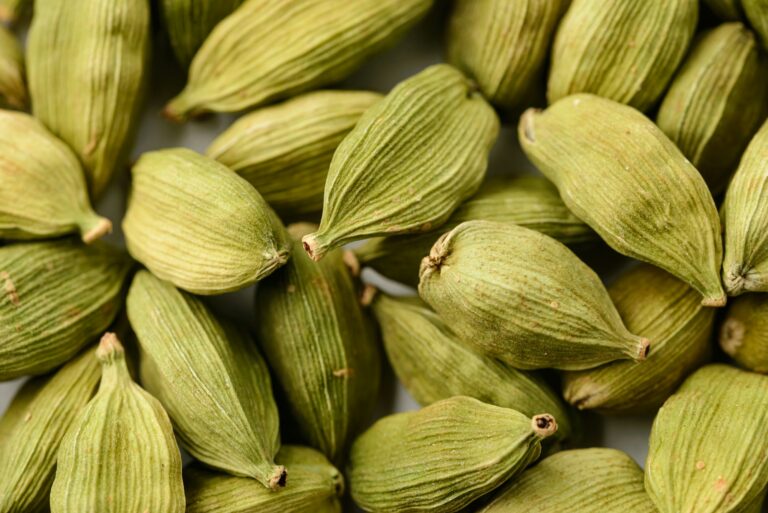The pictures in our articles might not always show exactly what the text is talking about. We use these images to make the article more interesting and eye-catching. They are there to add to the text, but not to replace it or show every detail.
Are you ready to embark on a culinary adventure with a versatile and nutritious vegetable known as okra? Also referred to as lady's fingers, okra has been enjoyed for centuries in various cuisines worldwide. Its distinctive elongated shape and vibrant green color not only add visual appeal to dishes but also offer a plethora of health benefits. Let's delve into 17 fascinating facts about okra that will not only enhance your knowledge but also inspire you to incorporate this incredible vegetable into your diet.
The Nutritional Powerhouse: Okra
Okra, or lady's finger, is a highly nutritious vegetable packed with essential vitamins, minerals, and fiber. It is low in calories and an excellent source of vitamin C, vitamin K, and folate. Incorporating okra into your diet can provide a significant nutritional boost.
The Journey of Okra: From Ethiopia to Global Cuisine
Believed to have originated in Ethiopia, okra has traveled across the world and is now a staple in various cuisines, including African, Middle Eastern, and Southern American. Its versatility in culinary applications makes it a beloved ingredient in diverse cultures.
Embracing the Slimy Texture of Okra
One of the distinctive features of okra is its slimy texture, which is released when it is cooked or cut. This unique characteristic makes okra ideal for thickening stews and soups, adding a delightful consistency to dishes.
Unleashing Culinary Creativity: Versatile Cooking Methods
Okra can be prepared in a multitude of ways, including frying, steaming, grilling, and pickling. It can be used in stir-fries, curries, gumbo, and even as a meat substitute in vegetarian dishes. The culinary possibilities with okra are endless.
Nourishing the Body with Fiber-Rich Okra
Okra is an excellent source of dietary fiber, which plays a crucial role in digestion, gut health, and blood sugar regulation. Including okra in your meals can promote overall digestive wellness.
Harnessing the Power of Antioxidants in Okra
Loaded with antioxidants like flavonoids and polyphenols, okra helps protect the body against free radicals and oxidative stress. This antioxidant-rich vegetable can reduce the risk of chronic diseases and promote overall well-being.
A Heart-Healthy Vegetable: Supporting Cardiovascular Wellness
The fiber and antioxidants in okra contribute to heart health by lowering cholesterol levels and improving blood circulation. Regular consumption of okra can reduce the risk of heart disease and promote cardiovascular well-being.
Boosting Immunity with Okra’s Nutrients
Okra contains immune-boosting compounds, including vitamin C, that help strengthen the body's defenses against illnesses and infections. Adding okra to your diet can fortify your immune system and support overall health.
Nurturing Brain Function with Folate-Rich Okra
The folate content in okra plays a significant role in brain health and cognitive function. It supports the production and maintenance of brain cells, enhancing mental clarity and focus.
Embracing the Antidiabetic Properties of Okra
Research has shown that okra exhibits antidiabetic properties by regulating blood sugar levels and improving insulin sensitivity. Incorporating okra into a balanced diet may benefit individuals managing diabetes.
Vitamin K: A Crucial Component of Okra
Okra is an excellent source of vitamin K, essential for blood clotting, bone health, and skin maintenance. Including okra in your diet can help meet your vitamin K requirements for optimal health.
Exploring the Versatility of Okra Pods and Seeds
While the green pods of okra are the primary edible part of the plant, the seeds can also be utilized in cooking. Okra seeds can be roasted, ground, or used to extract oil, adding a unique flavor and nutritional profile to dishes.
Unveiling the Potential Anti-Cancer Effects of Okra
Studies suggest that okra may possess anti-cancer properties due to its high antioxidant content and compounds that inhibit cancer cell growth. Including okra in your diet may contribute to overall cancer prevention.
Embracing Okra as a Natural Laxative
Thanks to its high fiber content, okra serves as a natural laxative, promoting healthy digestion and preventing constipation. It supports gastrointestinal health while providing essential nutrients.
Beyond Pods: Exploring the Culinary Uses of Okra Flower and Leaf
In addition to the pods and seeds, okra flowers and leaves are also edible and can be utilized in cooking. Okra flowers can be added to salads or stir-fries, while the leaves can be cooked similarly to spinach, expanding the culinary possibilities of this versatile vegetable.
Celebrating Cultural Significance: Okra on the Global Stage
Okra holds cultural significance in many countries, with traditional dishes and culinary practices revolving around this versatile vegetable. Its culinary versatility and nutritional benefits have made it a beloved ingredient in diverse culinary traditions.
Diving into Okra Seeds for Coffee: A Unique Experience
Roasted and ground okra seeds can be used as a coffee substitute or combined with coffee to impart a distinct flavor to your morning brew. This innovative use of okra showcases its versatility beyond traditional culinary applications.
These 17 facts about okra showcase the myriad health benefits, culinary applications, and cultural importance of this remarkable vegetable. By incorporating okra into your culinary repertoire, you can enjoy a well-rounded and nutritious meal plan while exploring exciting flavors and textures. Give okra a chance and unleash your creativity in the kitchen with this versatile and nutrient-packed vegetable.
In Summary
In conclusion, okra is a versatile and nutritious vegetable that offers a wealth of health benefits. Whether you're a seasoned okra enthusiast or a novice looking to expand your culinary horizons, the unique flavor and texture of okra can enhance your dishes. With its low-calorie content, high fiber levels, and abundance of vitamins and minerals, okra is a valuable addition to a balanced diet. From promoting digestion to boosting immunity and supporting heart health, okra's array of benefits make it a vegetable worth adding to your meals.
Frequently Asked Questions
Q: What is okra?
A: Okra, also known as lady's finger, is a green vegetable from the mallow family known for its unique slimy texture when cooked.
Q: How do you cook okra?
A: Okra can be prepared by frying, steaming, stewing, grilling, or pickling. It is a versatile ingredient in soups, stews, and stir-fries.
Q: Is okra good for you?
A: Yes, okra is highly nutritious, low in calories, and rich in fiber, vitamins A and C, potassium, and magnesium. It promotes digestion, boosts immunity, and supports heart health.
Q: Does okra have health benefits?
A: Okra offers a range of health benefits, including anti-inflammatory properties, blood sugar regulation, and antioxidant protection against chronic diseases.
Q: Can okra be eaten raw?
A: While okra can be consumed raw, it is commonly cooked to improve taste and texture. Cooking okra tenderizes it and diminishes its slimy texture.
Q: Can okra be frozen?
A: Yes, okra can be frozen after blanching to preserve its texture and nutrients. Frozen okra can be stored for up to six months for later use.
The journey through the fascinating world of okra unveils its nutritional prowess, culinary versatility, and cultural significance. Dive into the vibrant flavors and health benefits of okra as you explore new ways to incorporate this remarkable vegetable into your meals. Whether you savor it in a stew, a stir-fry, or even as a coffee add-in, okra is sure to delight your taste buds and nourish your body. It's time to embrace the wonders of okra and elevate your culinary experience with this extraordinary vegetable.






